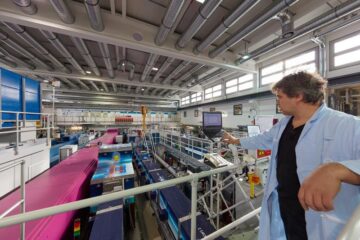EUROPACT 2011 – 2nd European Conference on Proccess Analytics and Control Technology

The conference will cover new technologies in process analytics, the implementation of these technologies in various fields and the transformation of data into knowledge. The conference will be supported by an exhibition of instrumentation, applications and data evaluation tools.
EUROPACT 2011 provides a meeting and a discussion forum for scien-tists and users of process analytics from academia and industry. The conference program will include plenary and keynote lectures and dis-cussion during poster sessions. One day of Pre-Conference Courses will allow newcomers to enter the field.
Topics:
* Production 2020 with respect to process analysis and control
* Status and development of PAT
* Making the most of your data
* Control for profit, safety and quality
* Chemical imaging
* Monitoring and control of unit operations
* New PAT technologies
* Process performance optimisation
* Bridging the gap between knowledge and application of PAT
The call for papers is open until October 1, 2010. Paper submission is requested via file upload (1-page abstract) at the conference web site in spring 2010.
Media Contact
Weitere Informationen:
http://events.dechema.de/Tagungen/EuroPACT_2011.htmlAlle Nachrichten aus der Kategorie: Veranstaltungsnachrichten
Neueste Beiträge

Bakterien für klimaneutrale Chemikalien der Zukunft
Forschende an der ETH Zürich haben Bakterien im Labor so herangezüchtet, dass sie Methanol effizient verwerten können. Jetzt lässt sich der Stoffwechsel dieser Bakterien anzapfen, um wertvolle Produkte herzustellen, die…

Batterien: Heute die Materialien von morgen modellieren
Welche Faktoren bestimmen, wie schnell sich eine Batterie laden lässt? Dieser und weiteren Fragen gehen Forschende am Karlsruher Institut für Technologie (KIT) mit computergestützten Simulationen nach. Mikrostrukturmodelle tragen dazu bei,…

Porosität von Sedimentgestein mit Neutronen untersucht
Forschung am FRM II zu geologischen Lagerstätten. Dauerhafte unterirdische Lagerung von CO2 Poren so klein wie Bakterien Porenmessung mit Neutronen auf den Nanometer genau Ob Sedimentgesteine fossile Kohlenwasserstoffe speichern können…





















